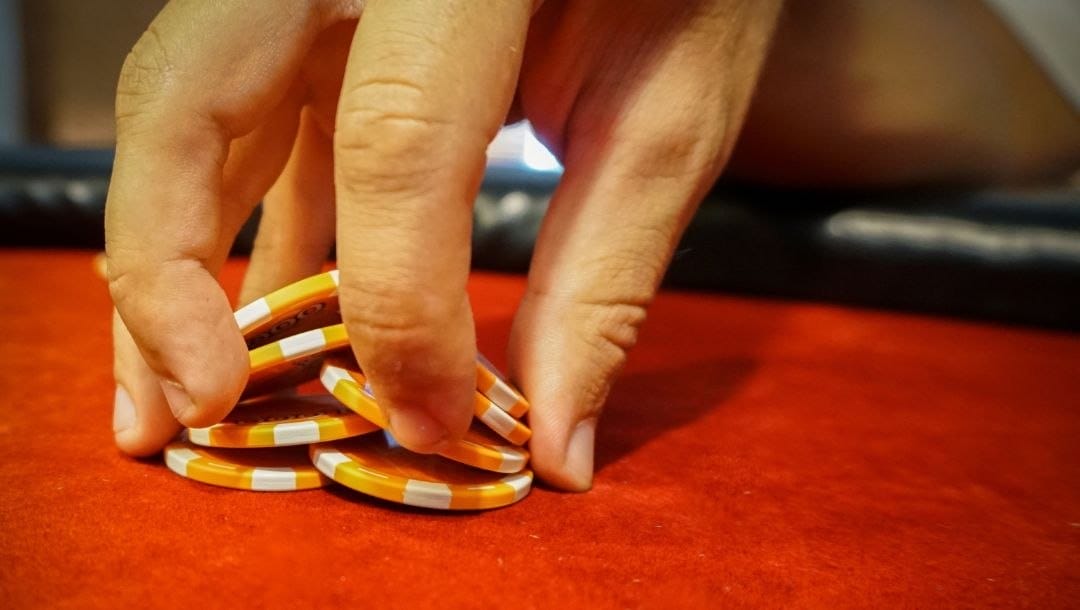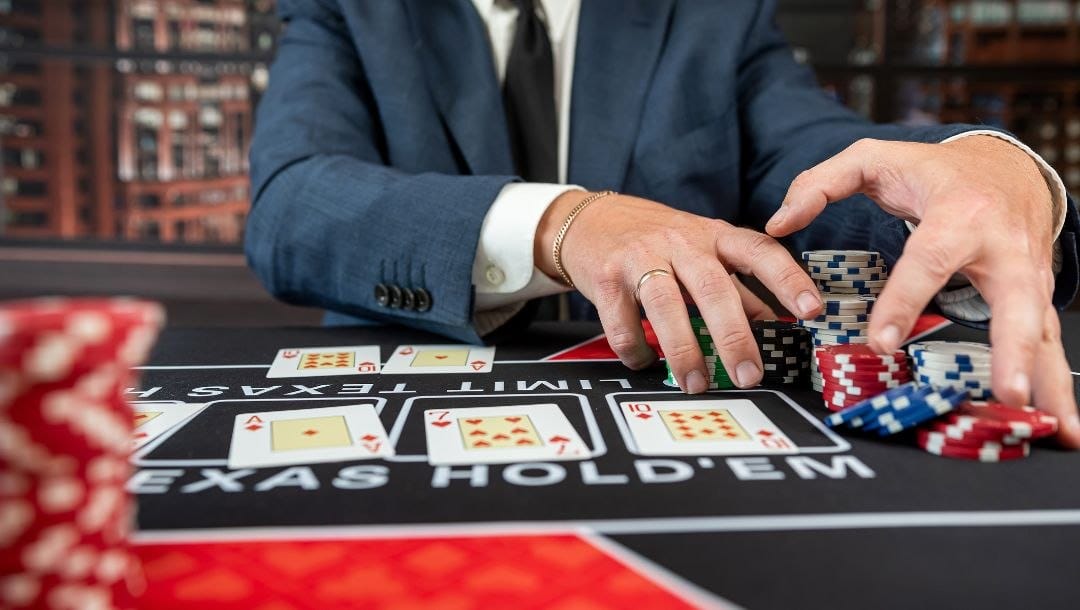Relying on instinct means allowing intuition to play a role in decision-making. Read on to learn more about trusting gut feelings at the poker table.

Do you pay attention to your gut feelings when making a big bet at the poker table? Do you allow intuition to play a role in your decision-making? And if you prefer to play online, is your online poker gameplay only based on statistics and strategy or on hunches?
When you learn to play poker, knowing when and when not to listen to your gut depends on the situation because every hand calls for different readings and feelings.
Both novice and experienced players will often be overheard at the end of a hand saying, “I should have trusted my gut.” Read on to learn more about gut instincts in poker, when to use them, and when to go with logic and theory.
What Are Gut Feelings?
Simply put, your gut instinct is your first, spontaneous response or answer to a situation. In psychological terms, your mind’s unconscious competence is kicking into play.
Instinct can also be interpreted as actions or decisions that have become automatic over time because of repetition. One example of this would be looking down at a 7-2 offsuit and instantly knowing that you should fold. You don’t have to think about it; you just know.
In poker, your gut feeling about a hand is the culmination of all your acquired poker knowledge, including player observations, board readings, and understanding of game dynamics — all coming together to form an intuitive response.
Why You Should Trust Your Instincts?

One of the best poker tips for beginners is that when you go with your gut, you’ll either be right or learn something. For example, say you’re facing a river shove and have a very strong gut feeling that you have the best hand. This could potentially cost you your buy-in, but in the long run, there’s no downside.
If you call and win, you’ve won. If you call and lose, you were wrong, but going with your instinct has highlighted a betting instinct flaw you can improve upon.
To adopt such an approach, you have to be willing to accept a little bit of variance. Apart from that, it’s a great way to learn to have faith in your instincts or highlight flaws that you can work on.
Going Against Your Gut
Sometimes, you need to validate your poker game through a more deliberate decision-making process — especially because false information or bad habits can influence gut feelings.
Also, you should not trust your gut when you have no previous knowledge on which to ground your decision. Panic is the opposite of executing a skill under pressure, while desperation and indecision can cause you to ignore your instincts.
At the poker table, when you find yourself in spots you’ve never faced before, high-pressure spots, or against opponents with styles you’re unfamiliar with, this is the time to stop and think about your decision.
Cognitive Misers

The concept of “cognitive misers” refers to people who save their mental energy by allowing routine thought processes to be automatic and by taking shortcuts. This is a survival poker strategy aimed at conserving mental resources for later, more important decisions.
Relying on your instincts or gut feelings in poker is advantageous because it saves mental energy for the more critical, challenging choices during the game. By mastering skills to the point where they become instinctual, you allow yourself to make decisions without conscious thought, which saves energy and frees your mind for new learning.
Imagine having a Q-9 of different suits in one of the earliest positions at a nine-handed table. Except for a few unusual game dynamics, this usually constitutes an automatic fold.
But when you were first learning how to play poker, this wasn’t an automatic fold. There was a time when seeing a picture card and another card as a promising straight would have made this hand very playable.
Running little equity calculations in your head every time you’re dealt rags would be mentally draining. The fact that you can now rely on your instincts and fold a hand like this without making a decision ensures that your energy levels remain high when needed.
Instinct and Multi-Tabling
People who enjoy playing online poker for real money are known to take advantage of their instincts by skillfully playing multiple tables at once. Although early detractors of online poker initially claimed that this was a mindless practice, it has since become recognized as a fine example of high-level thinking.
These players can rely on their instincts and make a lot of trivial decisions without expending much mental energy — most of the time by folding bad hands in bad table positions so that they can concentrate on the handful of big decisions they face every hour.
Trust Your Gut and Go With BetMGM
Knowing when and when not to trust your gut on a poker hand is a learned behavior that can only be mastered through lots of practice and exposure to the game. Register with BetMGM Online Casino for poker online games and poker tournaments to practice this aspect of your poker strategy.


